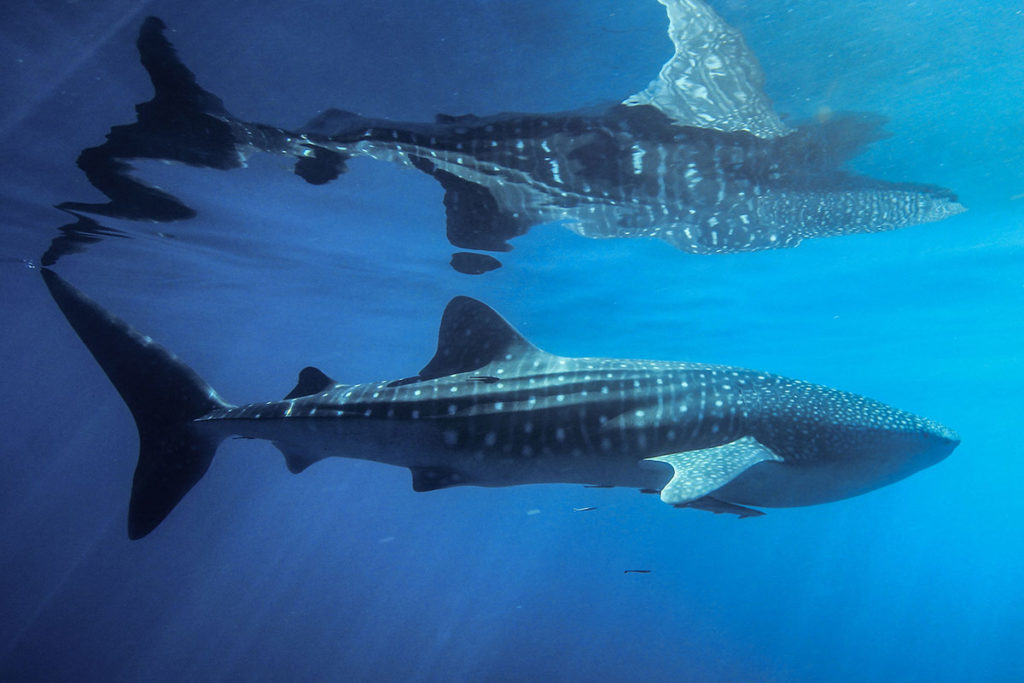ABOUT THE SPECIES
Although now protected in some countries, the migratory nature of the threatened whale shark may result in their moving from a protected area to a hunting zone. Human induced habitat destruction is also a major threat to this filter feeder, which is dependent upon food pulses and critical habitats to survive. Humans interfering with the natural behaviour of the sharks (boating/tourism) can also cause disruption and drive this species from critical habitats. To date, location of breeding and birthing grounds remains undefined. Image by Jess Leask.
ABOUT THE ORGANISATION
ECOCEAN is Australia’s only not-for-profit research organisation dedicated to conserving the world’s biggest fish, the whale shark. ECOCEAN scientists have been working on whale sharks at Ningaloo Reef since 1995 and have contributed to the global protection of whale sharks through reports to the IUCN Red List of Threatened Species and the United Nations Convention on International Trade in Endangered Species (CITES). ECOCEAN also promotes conservation of whale sharks and the marine environment by engaging members of the public in its ongoing “citizen science” projects. ECOCEAN was instrumental in setting up the world’s largest whale shark photo-identification library, the Wildbook for Whale Sharks, which encourages members of the public to get involved in whale shark research by submitting their photos. The library currently has over 7000 individually identified whale sharks from around the world. And an innovative new program by ECOCEAN is engaging the next generation of scientists by involving schools in the satellite-tracking of whale sharks, connecting them to real-world scientific research and inspiring them to protect and conserve our precious marine environment and its inhabitants.
You can vote for ECOCEAN and the Whale shark right here in The ANiMOZ Aussie Wildlife Vote 2020!

